June 25, 2025 | 23:09 GMT +7
June 25, 2025 | 23:09 GMT +7
Hotline: 0913.378.918
June 25, 2025 | 23:09 GMT +7
Hotline: 0913.378.918
On July 5, the Ho Chi Minh City Department of Agriculture and Rural Development held a conference to review agricultural and rural development tasks for the first half of the year and to outline tasks for the second half of 2024. The conference also launched the urban agriculture development program for Ho Chi Minh City for the period 2021-2030, with a vision towards 2050.
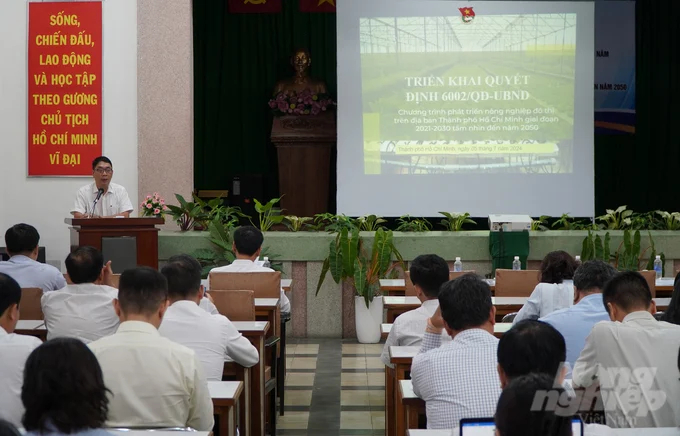
Mr. Dinh Minh Hiep, Director of the Ho Chi Minh City Department of Agriculture and Rural Development, chaired the conference. Photo: Nguyen Thuy.
According to Mr Dinh Minh Hiep, Director of the Ho Chi Minh City Department of Agriculture and Rural Development, the city's agricultural sector is facing numerous challenges: a sharp decline and increasing dispersion of agricultural land; rapid demographic, labour, and income shifts in rural populations placing pressure on agriculture and rural areas, affecting land demand and rural infrastructure development.
Furthermore, the city is grappling with issues such as deteriorating air and water quality, increasing household, industrial solid waste, and hazardous waste; ecological imbalance and biodiversity loss... impacting socio-economic development and people's livelihoods, with agriculture and rural areas being the most vulnerable.
Therefore, the urban agriculture development program in Ho Chi Minh City for the period 2021-2030, with a vision to 2050, aims to develop urban agriculture rapidly, efficiently, and sustainably.
Accordingly, it aims to transform Ho Chi Minh City into a centre of high-tech agriculture, and modern industrial and service centres supporting agriculture, ensuring the connectivity of high-quality and safe agricultural, forestry, and aquatic products along the value chain.
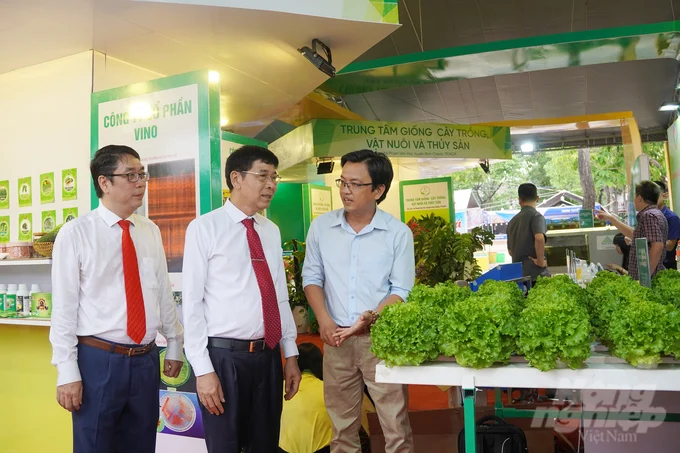
Ho Chi Minh City aims to produce vegetables and mushrooms according to safety standards, shifting from traditional market products to high-quality goods supplied to supermarkets and restaurants. Photo: Nguyen Thuy.
At the same time, it aims to drive comprehensive development in rural areas with synchronized, modern infrastructure, rational economic structure, and a safe, healthy living environment rich in cultural identity. Farmers and rural residents will have higher education levels and living standards, empowering them to lead agricultural and rural development processes.
Specifically, Ho Chi Minh City sets targets for the agricultural sector: high-tech agriculture to account for 75-85% of the total agricultural, forestry, and fisheries production value; annual growth rates of over 10% for agricultural and rural industrial and service sectors; agricultural labour productivity to increase by 5.5-6% annually.
The average agricultural production value per hectare is expected to reach from 850 million to 1 billion VND per year by 2030. Over 70% of agricultural labour in rural areas will be trained, and more than 30% of agricultural cooperatives will apply high technology.
Additionally, the city aims to certify at least 290 One Commune, One Product (OCOP) products with 3 stars or higher, including at least 50% achieving 4-5 stars. Particularly, rural income is projected to increase 2.5-3 times compared to 2020.
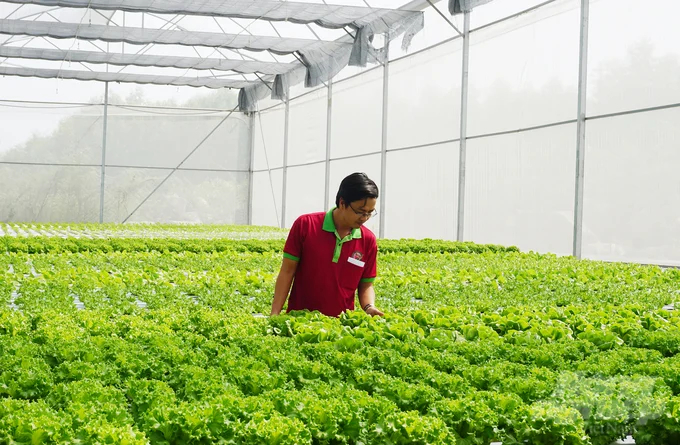
Urban agriculture development is an essential direction for Ho Chi Minh City's agricultural sector. Photo: Nguyen Thuy.
In the visionary outlook towards 2050, Cu Chi and Hoc Mon districts are focused on developing high-tech agricultural production areas. Binh Chanh and Nha Be districts emphasize the cultivation of vegetables, flowers, and fruit trees integrated with ecotourism and agricultural logistics.
The central districts of the city, comprising 16 inner-city districts, will concentrate on developing urban agriculture models, expanding green spaces, creating urban landscapes, improving the environment, organizing gardens and vegetable plots around residential areas, and landscaping with greenery that enhances the architectural aesthetics of urban structures, contributing to urban beautification.
Thu Duc City is set to develop into a hub for science and technology linked with ecotourism and agricultural logistics services. Meanwhile, Can Gio District will evolve into an ecotourism city connected with agricultural economic activities and environmental services related to forestry.
Mr Le Dinh Duc, Vice Chairman of the Cu Chi District People's Committee, noted that the number of agricultural products from Cu Chi District being consumed on e-commerce platforms is still quite modest. Agricultural production units are still hesitant to engage in e-commerce, particularly those producing fresh products, due to the short time from when the products are brought in to when they are sold. Prolonging this time can reduce the quality of the products. Ensuring quality requires significant investment in infrastructure, including cold storage and specialized transportation.
Delivering products within 3-4 hours while maintaining quality is a challenge for the fresh agricultural product sector. Additionally, accurately predicting the quantity of goods to be sold compared to market demand is crucial.
Translated by Hoang Duy

(VAN) Prime Minister Pham Minh Chinh held talks with Chinese Premier Li Qiang on June 24, in Tianjin, China.

(VAN) On the occasion of attending the World Economic Forum (WEF) in Tianjin, China, on the morning of June 25 (local time), Prime Minister Pham Minh Chinh met with Senegalese Prime Minister Ousmane Sonko.

(VAN) The Net Zero door is opening, but no one can walk through it if they stay outside the mandatory emissions inventory roadmap starting in 2025.
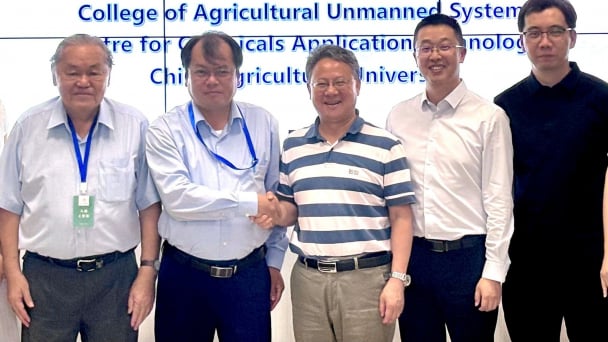
(VAN) The visit to China Agricultural University opens up new prospects for high-tech agricultural cooperation, fostering connections between research institutes and enterprises of Vietnam - China.

(VAN) Con Dao, the emerald gem in the vast ocean, is undergoing a powerful revival, transforming into one of Vietnam’s leading ‘eco-spiritual paradises.’ In this journey.
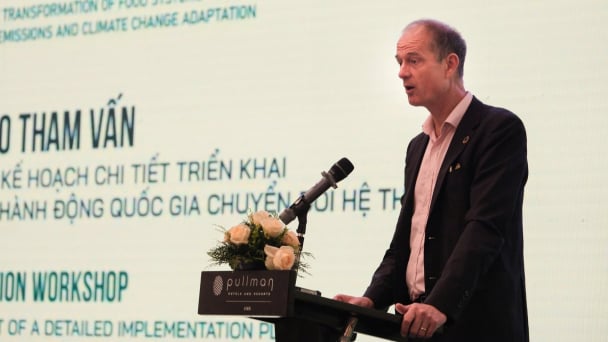
(VAN) UNDP in Vietnam organized a consultative workshop to discuss ways to integrate detailed implementation plans into the national food systems transformation strategy.
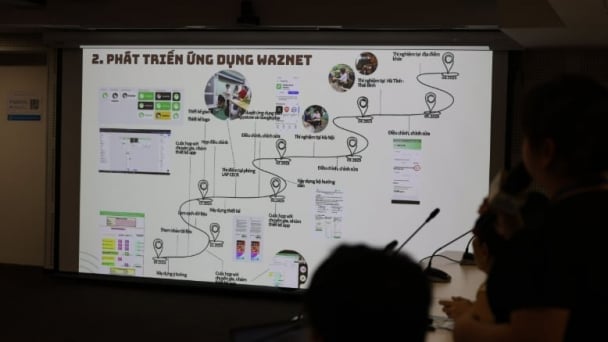
(VAN) Waznet helps digitize waste collection data, recognizing the environmental contributions of informal collectors in reducing greenhouse gas emissions.